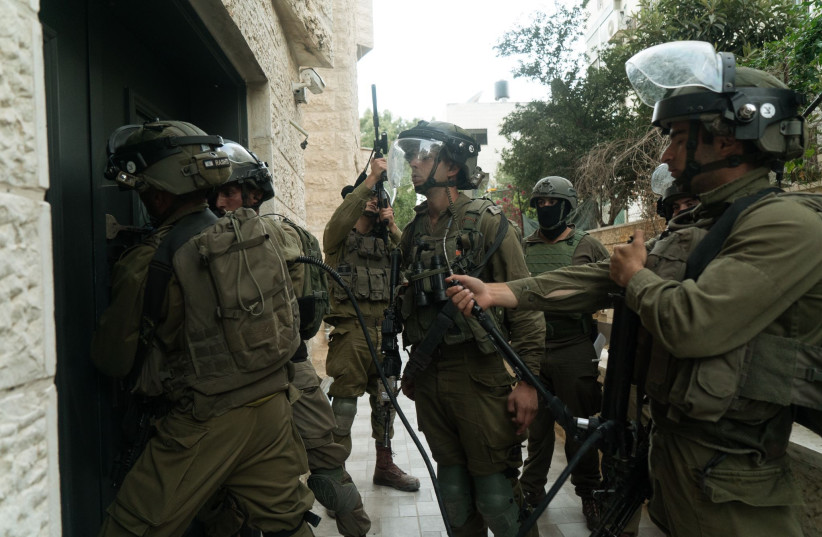In a direct challenge to Israel, the PLO has offered its headquarters in Ramallah as temporary offices for the Palestinian nongovernmental organizations that were closed by Israeli security forces last week because of their ties to the Popular Front for the Liberation of Palestine (PFLP).
Last week, soldiers raided and closed the offices of Addameer Prisoner Support and Human Rights Association, Al-Haq, the Union of Palestinian Women Committees, the Union of Agricultural Work Committees, the Bisan Center for Research and Development, the Palestine chapter of the Geneva-based Defense for Children International and the Union of Health Work Committees.
“These human-rights institutions will continue their work to expose the occupation and its crimes against our people, because these institutions operate according to Palestinian law,”
Palestinian Authority President Mahmoud Abbas
The move came after Israeli authorities last year declared the groups terrorist organizations that are affiliated with the PFLP.
The decision to allow the organizations to reopen their offices in the PLO headquarters in Ramallah was announced by the PLO’s Department of Human Rights after an emergency meeting on Sunday.

The meeting, attended by representatives of the organizations and several senior Palestinian officials, was held to discuss the repercussions of the Israeli security crackdown on the NGOs.
It was not immediately clear whether the NGOs have accepted the offer to move to the PLO headquarters.
PLO statements
Senior PLO official Wasel Abu Yusef said Palestinian officials would hold more discussions to discuss ways of confronting the decision to close the NGOs.
Fatah deputy chairman Mahmoud al-Aloul was quoted as saying the Israeli decision was “part of its crimes that it practices daily against our people and all its institutions and holy sites.”
Ahmad Tamimi, head of the PLO’s Human Rights Department, said the department’s offices were open as temporary headquarters for the institutions closed by the Israeli authorities.
He said his department was fully prepared to provide support and assistance to the NGOs.
Shawan Jabarin, director-general of Al-Haq, condemned the Israeli decision to close the NGOs as “a political step targeting everything that is Palestinian, including the narrative, identity and existence, because civil society is part of Palestinian society.”
He said he had received a phone call from an Israel intelligence officer who summoned him for a meeting. The officer warned him not to violate the order to close the NGOs, Jabarin said.
Murad al-Sudani, secretary-general of the General Union of Palestinian Writers, said the closure of the NGOs was an assault on all Palestinians, which “requires unity in confronting it through the PLO, the sole legitimate representative of the Palestinian people.”
On Saturday, Palestinian Authority President Mahmoud Abbas met with representatives of the NGOs in his office and told them the Palestinians rejected the Israeli decision.
“These human-rights institutions will continue their work to expose the occupation and its crimes against our people, because these institutions operate according to Palestinian law,” he was quoted as saying by Wafa, the PA’s official news agency. “We must all stand together and confront this Israeli policy that insists on moving forward with the policy of unilateral actions, ignoring all agreements signed between the two sides and violating international law.”
The PA was holding intensive contacts with various parties to stop the Israeli “provocations” against Palestinian institutions, Abbas said.
PA Prime Minister Mohammad Shtayyeh also defended the NGOS, describing them as a “major component of the Palestinian national fabric.” The NGOs were legal institutions registered with the PA government and operate within the framework of the law, he said.
